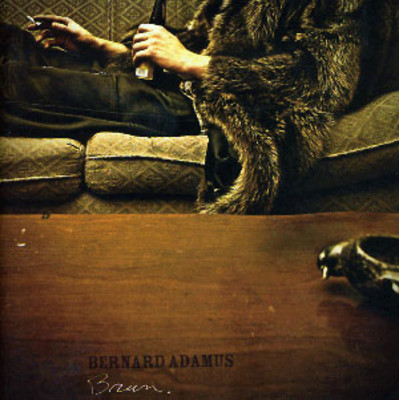by Paul Falardeau (Arts & Life Editor)
Email: paul at ufvcascade dot ca
 A quick scan of the top-selling artists in Quebec will give you the name Bernard Adamus. Units moved aren’t always an indicator of the talent stamped to the disc, but this offering from La Belle Province has more than its share of the latter. Adamus, who immigrated to Montreal from Poland at age three, takes his music in a wild new direction despite the fact making cookie-cutter copies of the music popular in the francophone scene could have been very popular with today’s hipster kids.
A quick scan of the top-selling artists in Quebec will give you the name Bernard Adamus. Units moved aren’t always an indicator of the talent stamped to the disc, but this offering from La Belle Province has more than its share of the latter. Adamus, who immigrated to Montreal from Poland at age three, takes his music in a wild new direction despite the fact making cookie-cutter copies of the music popular in the francophone scene could have been very popular with today’s hipster kids.
Instead of trying to contrive something as part of the current trend Adamus’ play is to fall into rough and riotous neo-bluegrass, with a thick coating of the blues of the US. His bio claims he started off singing blues standards before transforming into a singer-songwriter of his own accord – in French. For instance “Les Raisons” sounds like stanky Mississippi mud but mixes Montreal place names into the mire. The result is invigorating and exciting.
Adamus’ voice is his best weapon, a soulful blend of Gogol Bordello’s Eugene Hutz and pure Quebec maple syrup. It carries a deep degree of sensitivity and yearning but also is achingly familiar with studio chatter (“C’est bon?…C’est bon”) and cracks of laughter between verses. Overall, it is a voice that is as much an enigma as it is a beacon to listeners, drawing them in as Adamus shifts from Stones-esque country honks, complete with barroom rattling and shouted choruses, to the slide-guitar laden “La Brise,” which hums along like a dirge caught in a cold Montreal winter, contextualizing the artist within his hometown.
“La Cimetiere” is a fast-paced stomp that gets the blood pumping much in the same way as Led Zeppelin did with “Bron-Y-Aur Stomp.” Although he makes poignant and affecting music, Amadus is refreshingly and genuinely optimistic – and don’t worry, you don’t need to speak French to get a handle on it.
If there is one drawback to the album, it’s that it is almost consistently unhurried, with a lot of moody slow-burners. With the exception of tracks like “Avec Les Doigts de Ma Main (Alcoologie)” which cooks along at a high clip, the album is mostly down tempo. That means it simply sets itself up as a perfect choice of album for rainy nights, hot summers, and any time where a chill out is required, but it fails to fill-in for high-energy situations.
Bernard Adamus has put together a collection that dares to define Quebec through a lens that no one previously thought incorporate and through the risk comes a mighty win.


